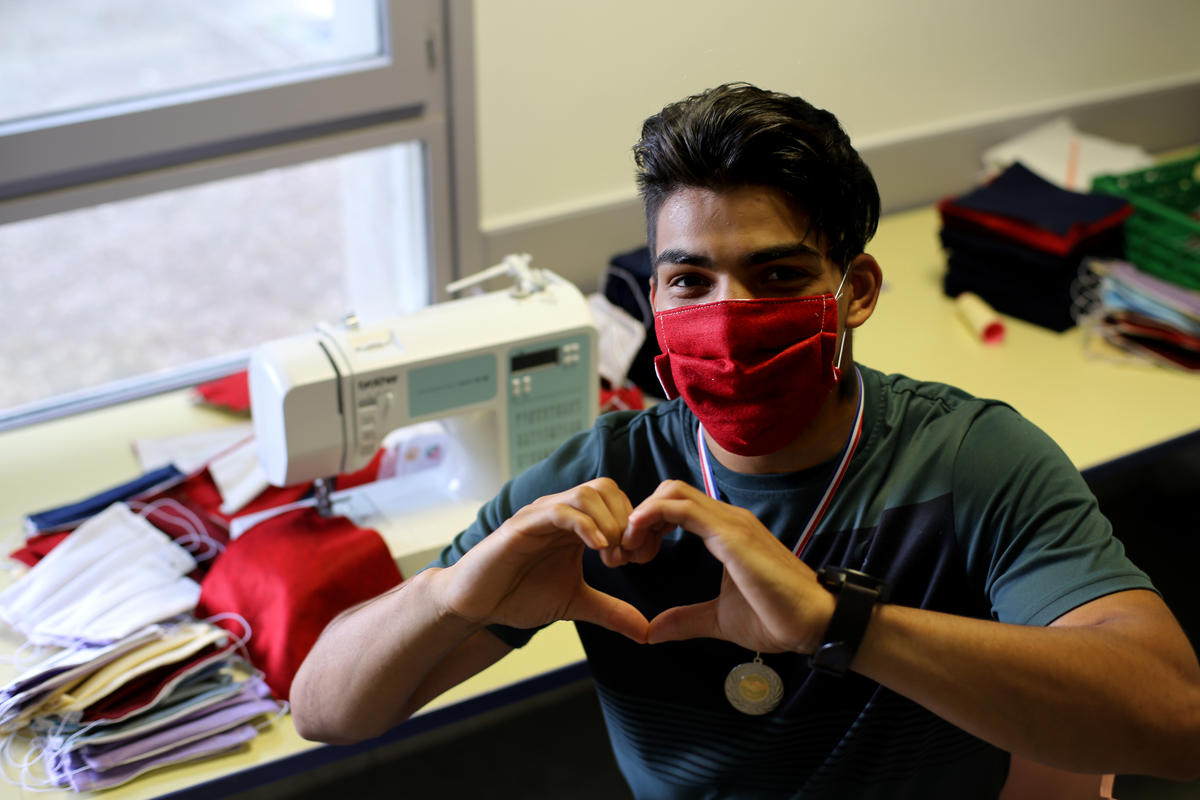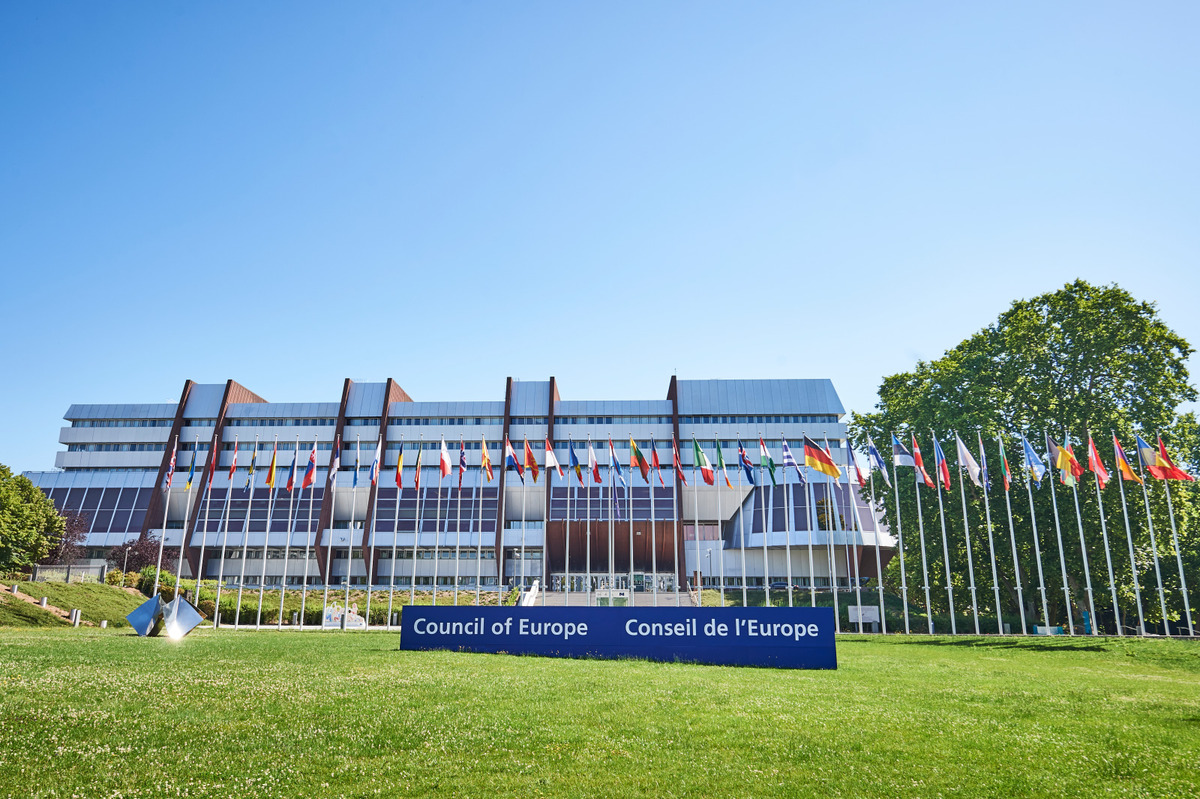Solution found for first group of Sangatte residents
Solution found for first group of Sangatte residents

CALAIS, France, October 18 (UNHCR) - Five Afghans living in the controversial Sangatte centre, near Calais in northern France, have become the first residents of any nationality to have their nebulous situation resolved. They are also the first Afghans to benefit from a recent voluntary repatriation agreement signed by the UN refugee agency with the French and Afghan governments.
On Thursday, the five Afghans arrived back in Afghanistan's capital, Kabul, on a flight from Paris via Istanbul. A few days earlier, they had confirmed to a special UNHCR team working in Sangatte that they would like to take advantage of the repatriation agreement, under which their transport costs were paid for by the French government, and each received a reintegration grant of Euros 2,000.
The five men, ranging in age from 19 to 46 years old, were from three different ethnic groups and four different towns and cities in Afghanistan. A sixth Afghan who had expressed a desire to return home was advised by UNHCR to wait until his broken leg had healed properly.
"I spoke to my father, who is a shopkeeper in Kabul," one of the Afghans, Amanullah, told UNHCR staff before he left Sangatte. "He told me that the situation is getting better and that I could go home. I am so glad I am going to be reunited with my three brothers and two sisters."
Amanullah, 23, said he left Afghanistan in August 2001, a month before the September 11 attack in the United States focused the world's attention on his homeland, and four months before the Taliban were finally ousted. His family had sent him out of the country partly so he could receive some education, which was next to impossible under the Taliban, and partly because they were scared by reports of Taliban atrocities. At that time, faced by an indifferent outside world, few Afghans held out any hope for improvement in the situation in their country, and young men of Amanullah's age often feared either imprisonment or forced conscription.
After a long and hazardous journey that took him through Pakistan, Iran and Turkey, Amanullah finally reached France in June this year. He told his UNHCR interviewers he had no idea which European countries he had passed through before arriving in France. A month later, he reached Sangatte after hearing about it through the grapevine.
After nearly four months in the centre, and repeated failed attempts to reach Britain, Amanullah had had enough. "It has been 14 months since I left and I have spent $11,000 to get where I am now," he said. "I have nothing left. I cannot go on any longer."
The signal from his father, and the fact that the French government's generous repatriation offer made return financially possible, were enough to make Amanullah feel that returning home was his best option, despite the financial loss suffered by him and his family. $11,000 is a huge sum of money for Afghans, and those who arrive in Europe are often funded by the entire extended family as well as loans from outside agents, which they may have trouble repaying.
Following an initial basic identification exercise by the French Red Cross, the UN refugee agency has established a permanent presence inside the Sangatte centre in the form of an advance team of international staff who will interview the residents of the camp. The objective is to compile a profile of the Sangatte residents and provide them with one-to-one legal counselling and advice.
UNHCR's overall objective is to ensure that those in Sangatte who are refugees receive the international protection they are entitled to, and that others - such as the five Afghans who returned home - find a solution to the predicament in which they find themselves.
The numbers inside the centre can vary considerably from day to day, and even between lunch and supper. However, the Red Cross census indicates that the centre's roving population may total more than 3,000 people originating from some 50 countries. On average, however, there are around 1,700 people in the centre at any one time. About 100 new arrivals enter the centre daily. More than 80 percent of the camp's total population originate from Iraq, Afghanistan and Sudan.
The residents of the camp are a very diverse group and they seem to have opted to shelter in Sangatte for a variety of different reasons. There are a number of especially vulnerable individuals such as unaccompanied minors, disabled persons and single women. UNHCR has made finding a solution for these groups a priority.
In July, the UN refugee agency recommended that governments outside the immediate region (where more than 1.7 million Afghans have returned home since March) offer repatriation assistance to any Afghan who wished to return to his or her homeland.
UNHCR also recommended that Afghan asylum seekers whose applications were on hold should have their cases finalised. At the same time, the agency issued advice concerning at least seven categories of people whom it believed still faced protection threats and might qualify for refugee status, despite the dramatic change of circumstances in the country.
UNHCR and the Afghan government signed a tripartite agreement with the French government on September 28. A separate but similar tripartite agreement was signed with the British government in Kabul on October 12.









